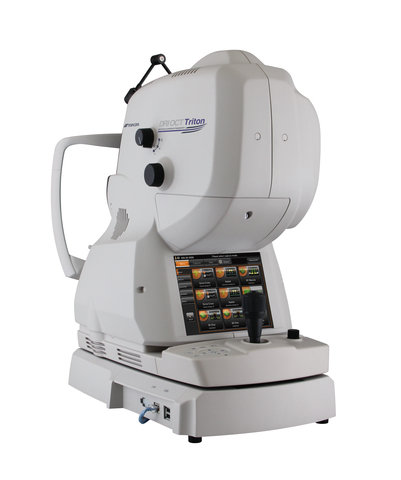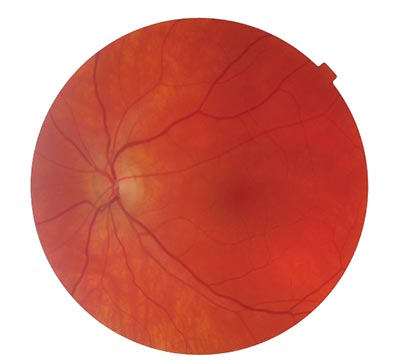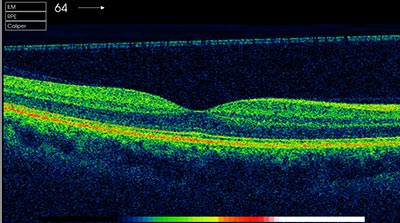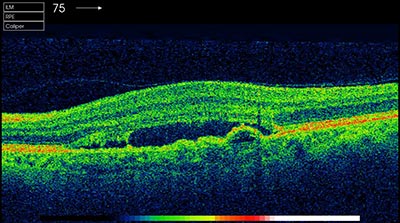… 3D OCT – Enhanced Retinal Scan
OCT stands for Optical Coherence Tomography and is the latest technology used to monitor the eye, particularly the ten layers of the retina.
During a standard Onlookers eye examination a photograph of the retina is taken. This is the view an Optometrist has when they look through your pupil into the back of your eye, they can see the surface, the first layer of the retina.
A 3D-OCT scan is similar to an ultrasound, but using light waves rather than sound waves, to show the different layers comprising the back of the eye. With 3D-OCT we can look beyond the single surface shown in a photograph, and see all 10 layers of the retina in cross-section. We can use this to detect anything unusual and arrange further investigation if required.




